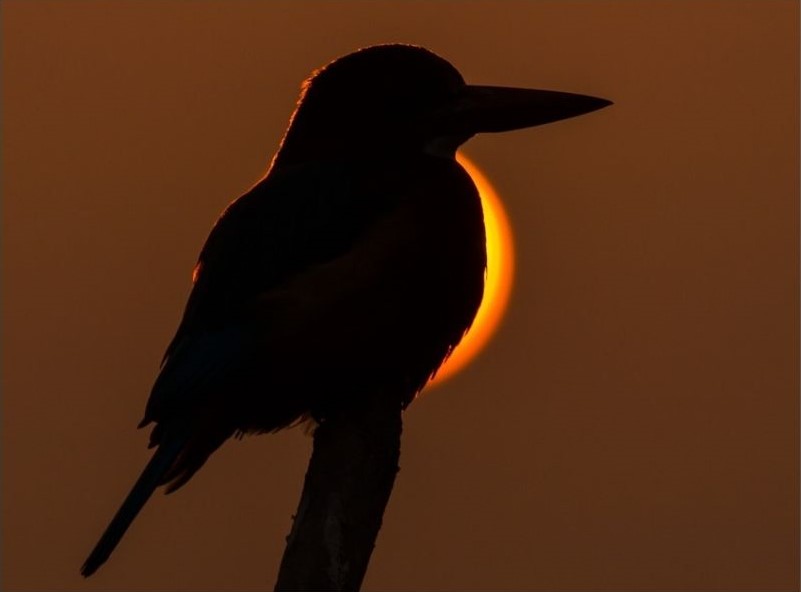The short answer is yes.
Solar cycles and light levels play significant roles in hormonal systems and the functioning of important activities such as reproduction, moulting and feeding. However as the solar eclipse event only takes place every few years for a limited time most of the behavioural changes reported in wildlife during this period are anecdotal as extended studies during these periods are simply not viable.
Reports of changes in behaviour in birds, insects, mammals, reptiles and archanids have been noted during the darkening and lighting around a solar eclipse. For example birds stop singing and are seen coming in to roost only to take off again once light levels change, crickets start chirping, bees return to hives and fireflies put on their nocturnal displays.
During this time of temporary change, human-wildlife interactions may increase as diurnal animals return to sleep while noctural species emerge.
Keep a look out for subtle changes around you. You may even notice a bat or two!


